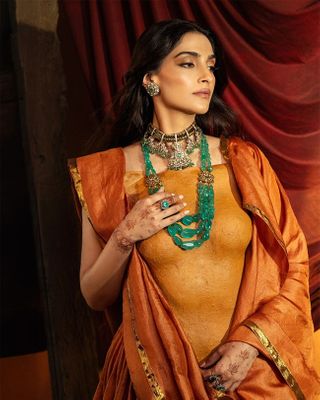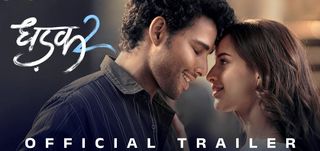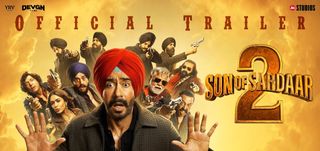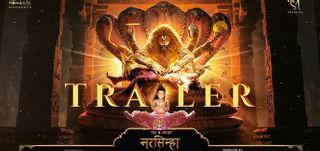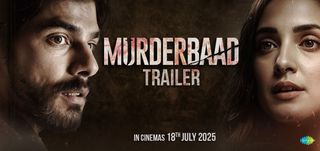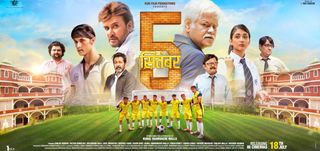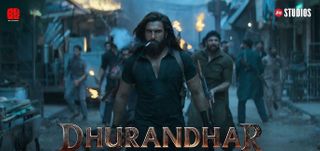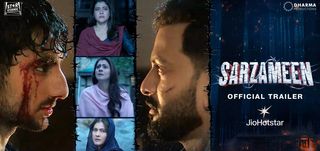
De De Pyaar De Movie Review
Whatever expectations, good or bad, that you walk into the theater with, De De Pyaar De is going to prove to be an overachiever. If you're thinking what could be worse than the vile, migraine-enducing crash course in "loose" women that was Sonu Ke Titu Ki Sweety, then writer Luv Ranjan has a trick or two up his sleeve and a shameless grin on his face to show you. On the other hand, if Sonu Ke Titu Ki Sweety (I insist on writing the whole name every time because the title was the best piece of writing in the entire film) was your idea of the ideal bro-hang where you can laugh at women being caricatured in the lowest possible way, then DDPD (horrible title, no full name mentions) will sink lower than you could've fantasized in your wettest bro-dreams.
Ranjan, the writer and director of Sonu Ke Titu Ki Sweety, decides to take a break from the directorial limelight and plants a fall-guy in his place in the form of Akiv Ali, who can now easily field all the blame and hate the film is bound to receive from audiences with thinking minds. Of course, if Ranjan was smart enough to understand smart people, he would realize that the smart ones already know a Luv Ranjan film is dictated a lot more by his lazy writing than any direction by the numbers.
This time around, Ajay Devgn plays the Ranjan mould of chill, modern dude; only in the #MeToo times, he's 50 and noble because he doesn't have sex with the passed out stranger (Rakul Preet Singh) at his party, because not raping a woman today requires strength of character in a man, right? This man could never be a predator, as much is made clear in many words. The woman wakes up the next day and is puzzled to find out from him that he didn't have sex with her, even though she was drunk to the point of having no memories of anything either way. She even declares (horrifyingly) that he should've taken his chance when he had her at his mercy; he'll never be able to score with a sober her. Then Ranjan... ahem, Akiv Ali parades her at the next song and dance sequence gulping as much alcohol as is being showered on her by lusting men with itchy crotches. But not our man Ashish (Devgn) because dignity and nobility.
Ranjan, along with his co-writers Tarun Jain and Surabhi Bhatnagar (who gets a title plate separate from her male compatriots for screenplay, who then get another writing credit "written by"), proceed to perform ably as the film's backside-coverers (examples above), using the female character Ayesha to be a one-dimensional portrayal of a modern woman right out of the mind of a sex-hungry man's infantile imagination, so that nobody can question the man's attitude towards her.
Before any actions given to her by the writers can be termed misogyny by the audience, she is made to speak the audiences' mind and declare such actions HER choice, as if she were a real person and had a say in the matter, rather than being an absorbent target for some low jokes who also has to look attractive at ALL times. This is most evident in the fact that the writers ruthlessly use her suggestion earlier in the film that "sleeping together once doesn't imply love" against her towards the end when her boyfriend ends up sleeping with another woman. She can't backtrack from her unknowing context-less words now, can she? Is it her choice indeed?
The second half kicks into Gharwali Baharwali mode of male apologism, with Ashish's ex-wife Manju (Tabu) enters the picture. Suddenly, a stoic mother with an evidently stable head on her shoulders suddenly gets into a juvenile pissing contest with a woman who she only knows as Ashish's secretary (Ayesha), over an ex-husband who left them and never looked back for 15 years because he didn't think he would've been a good father if he had stayed. The warped logics of this film start eating at your intelligence like a flesh-eating virus after a point. That point was 15 mins into a 135 minute film, the last 30 of which are spent completely unraveling all the points the screenplay tried to make in the beginning.
Luv Ranjan even brings with him his full artillery of cheap comedic sounds effects stolen from childhood cartoons and a background score that tries to imitate itself with lesser and lesser success as the film goes on, caught in a loop of mediocre hook tunes that are aimed at propping up limp punchlines. And dead-brained punchlines are in plenty, mouthed every few seconds by one extremely overbearing character after another, snarking like a Punjabi Tony Stark with a tone-deaf sense of humor.
As many shortcomings as Sonu Ke Titu Ki Sweety had, it at least had energetic performers to mouth the often repulsive lines. DDPD suffers enormously from a bloated, tired Ajay Devgn who looks like he's in no mood to act anytime soon. He seems to have reached the Salman Khan level of deadfaced acting, wherein even the moving of his eyebrows to form an expression seems like a Herculean task. Rakul Preet Singh gives her best to a character that has no room to grow and is mostly sidelined in the second half once the writers set their sight on the older lady. Tabu does her best to maintain her dignity, a sometimes futile attempt in the midst of all her talk about her "older model" having "a lot more mileage" compared to the newer models Ashish now hangs with. You wish someone would hand her the script of Andhadhun 2 to keep her away from such comedic cesspools.
Once the end credits started to roll, satisfied or not, all began to exit together. The credits are suddenly interrupted by a mid-credits party song, which begins with an up-close inspection of a dancing Rakul Preet. Men young and old stopped dead in their paths to watch this, craning their necks up at the prancing woman being followed like a salivating dog by the camera. If I had any doubt in my mind who the target audience for films in the RCU (Ranjan Cinematic Universe) are, this pretty much cleared it. DDPD is a film that deserves to have Alok Nath in it.








